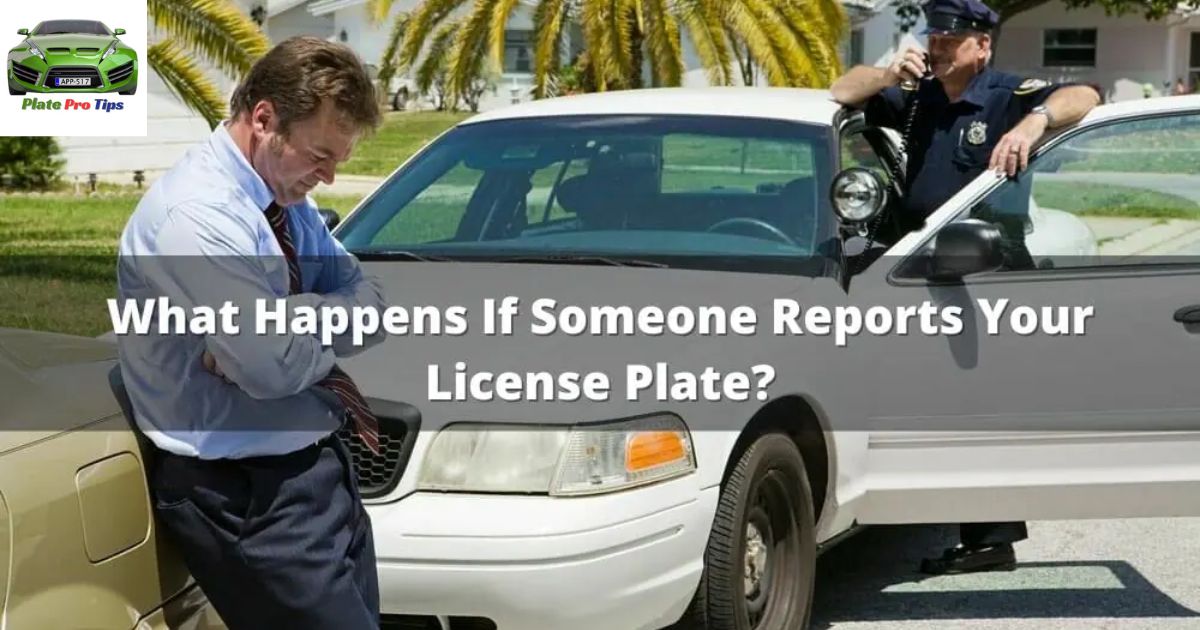If someone reports your license plate, it means they have informed authorities about a specific vehicle’s registration details. This could be due to an observed traffic violation or suspicious activity. Law enforcement may use this information to investigate the reported incident or track down the vehicle owner.
Ever wondered about the repercussions if someone reports your license plate? It’s not just a matter of routine; it could have real consequences. Your license plate is the key to your vehicle’s identity, and any report could set off a chain of events. Discover the potential outcomes and learn how to stay on the right side of the law.
WheWhen someone reports your license plate, commonly known as A License Plate, to the police, it initiates an investigation into the registered vehicle’s activities. This reporting can stem from various reasons, such as witnessing a traffic violation or suspecting criminal behavior. Law enforcement uses the provided information to identify the vehicle owner, investigate the reported incident, and take appropriate action.n someone reports your license plate, it means they’ve informed authorities about your vehicle’s registration details. This report could be prompted by observed traffic violations or suspicious activities. Law enforcement uses this information to investigate and may take actions ranging from issuing warnings to legal consequences, depending on the reported incident.
What Happens If Someone Reports Your License Plate to Police
When someone reports your license plate, commonly known as A License Plate, to the police, it initiates an investigation into the registered vehicle’s activities. This reporting can stem from various reasons, such as witnessing a traffic violation or suspecting criminal behavior. Law enforcement uses the provided information to identify the vehicle owner, investigate the reported incident, and take appropriate action.
In essence, reporting a license plate serves as a mechanism to uphold public safety and ensure that individuals adhere to the rules of the road. It emphasizes the collaborative effort between citizens and law enforcement to maintain a secure and law-abiding community, encouraging responsible behavior among vehicle owners.
What If I Was Reported for Reckless Driving
If you find yourself reported for reckless driving, it signifies that your behavior behind the wheel has raised concerns due to dangerous and irresponsible actions on the road. Reckless driving typically involves severe violations of traffic laws, such as excessive speeding, aggressive maneuvers, or disregarding the safety of others. Law enforcement takes reports of reckless driving seriously, as it poses a significant threat to public safety.
Addressing a report for reckless driving also involves taking steps to rectify the situation. This may include cooperating with law enforcement during an investigation, attending court hearings if required, and taking corrective actions to ensure safer driving practices in the future. It’s an opportunity to learn from mistakes, improve driving behavior, and contribute to overall road safety.
Can you Get a Ticket if Someone Reports Your License Plate
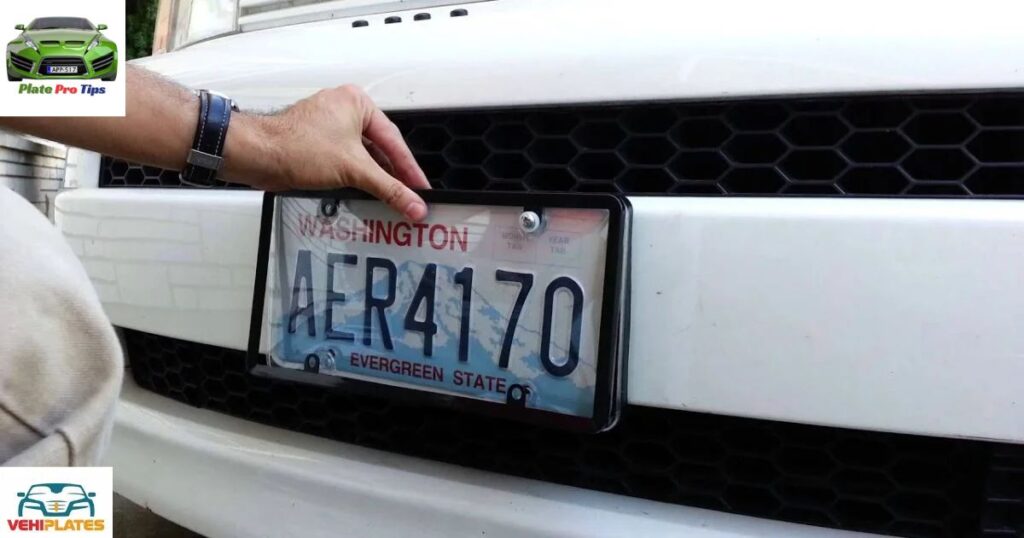
Getting a ticket solely based on someone reporting your license plate is not a straightforward process. While reports from individuals can prompt law enforcement to investigate, receiving a ticket usually requires evidence of a traffic violation or illegal activity. Authorities will typically need to witness the violation or find supporting evidence to issue a citation.
It’s important to note that false reports can have consequences, as intentionally misleading law enforcement may lead to legal repercussions for the person making the report. Nevertheless, if your vehicle is reported, it underscores the significance of adhering to traffic laws and maintaining responsible driving habits to avoid potential legal complications.
How Police Deal with Reports of Misconduct
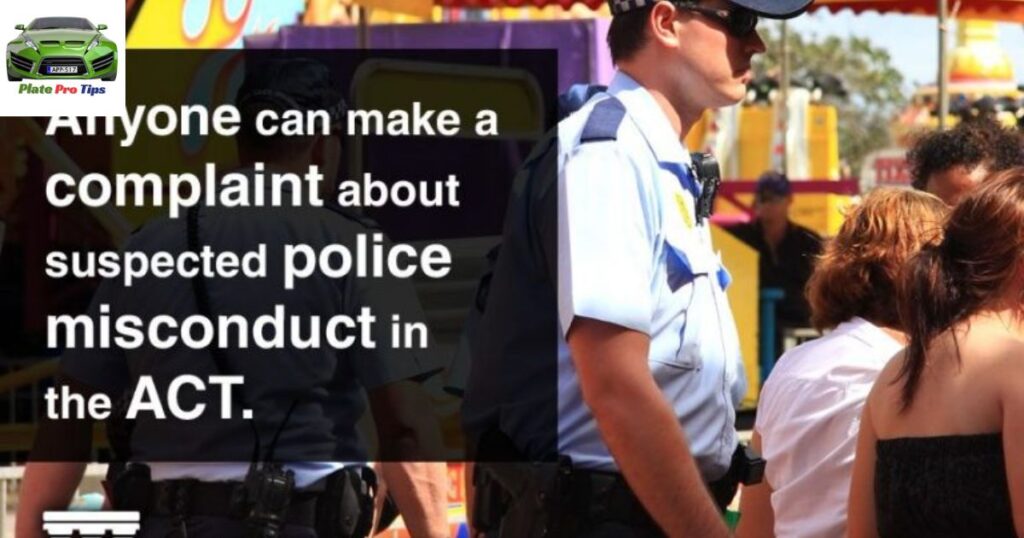
When reports of police misconduct surface, law enforcement agencies typically follow a structured process to address the allegations. The first step involves an internal investigation to assess the validity of the claims. This investigation may include reviewing any available evidence, interviewing witnesses, and evaluating the conduct of the involved officers.
Moreover, many police departments have established mechanisms for citizens to file complaints or reports of misconduct, providing an avenue for accountability and addressing concerns within the community. Community involvement and collaboration can contribute to improved policing practices and foster a sense of trust between law enforcement and the public.
Understanding License Plate Reports
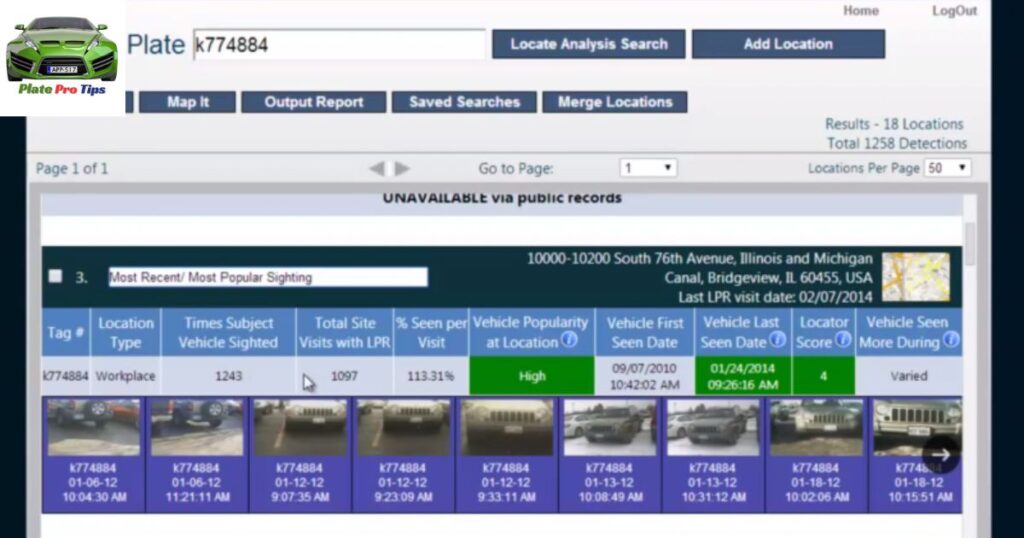
License plate reports play a crucial role in law enforcement by providing valuable information about vehicles and their owners. When someone reports a license plate, it usually means that they have observed a traffic violation, suspicious behavior, or an incident requiring investigation. This information allows law enforcement to identify and address potential issues, contributing to public safety.
Understanding license plate reports involves recognizing the collaborative effort between the public and law enforcement to maintain a secure community. It emphasizes the importance of responsible driving and adherence to traffic regulations to avoid potential consequences. Additionally, this process reflects the shared responsibility for upholding the rule of law, ensuring that individuals contribute to creating a safe and law-abiding environment on the roads.
What It Means
The phrase “What It Means” prompts a consideration of understanding and interpretation. In various contexts, it signifies delving into the significance or implications of a statement, action, or situation. It encourages individuals to explore the deeper meaning behind information, events, or ideas, fostering a thoughtful and reflective approach to comprehension.
Reporting Triggers
“Reporting Triggers” refers to specific events, behaviors, or conditions that prompt individuals to file reports or complaints, particularly in the context of various institutions or organizations. These triggers often involve incidents that are perceived as violations, irregularities, or concerns that require attention or investigation.
Potential Consequences
The term “Potential Consequences” refers to the various outcomes or results that may arise from a particular action, decision, or situation. In any given context, individuals or entities weigh potential consequences to anticipate the impact of their choices. These consequences can be positive, such as achieving goals or reaping rewards, or negative, involving repercussions, penalties, or unintended challenges.
Whether in personal choices, professional decisions, or societal matters, understanding potential consequences helps individuals make more informed and responsible choices. It prompts individuals to assess risks, consider long-term impacts, and take necessary precautions to mitigate negative outcomes.
Traffic Violations
Traffic violations encompass a range of infractions committed by motorists on the road, typically related to the disregard of traffic laws and regulations. These violations can include speeding, running red lights or stop signs, improper lane changes, and distracted driving, among others. Traffic violations are enforced to maintain order, safety, and efficiency on the roads, promoting a secure environment for all motorists, pedestrians, and cyclists.
Traffic Tickets
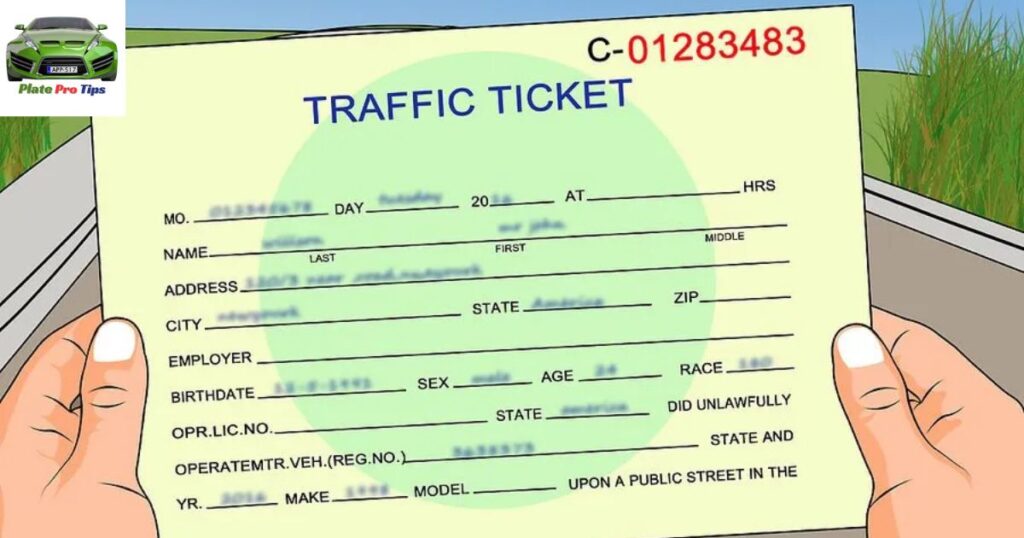
Traffic tickets are official notices issued by law enforcement authorities to individuals who have violated traffic laws. These violations can range from speeding and running red lights to more minor offenses like improper parking. When a driver receives a traffic ticket, it typically includes details about the specific violation, the associated fine, and instructions on how to address the citation.
Law Enforcement Response
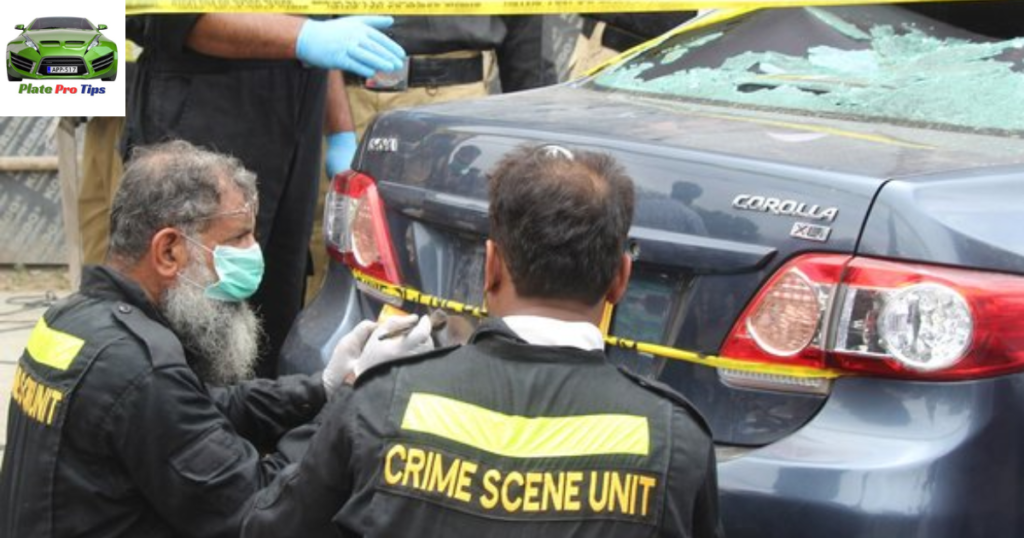
Law Enforcement Response refers to the actions taken by police or other law enforcement agencies in reaction to a reported incident or emergency. When an individual or the community reports a crime, suspicious activity, or a public safety concern, law enforcement responds by investigating, assessing, and taking appropriate measures.
Law enforcement responses vary based on the nature and severity of the situation. In emergency cases, such as accidents or crimes in progress, immediate and urgent responses are crucial. For less urgent matters, a thorough investigation may take place to determine the facts and address the reported issue appropriately.
Investigation Protocols
Investigation protocols refer to the established procedures and guidelines followed by law enforcement or investigative agencies when handling and conducting inquiries into reported incidents or crimes. These protocols serve as a structured framework to ensure a systematic and thorough approach to investigations.
Ticket Issuance
Ticket issuance is the formal process by which law enforcement authorities issue citations to individuals who have violated traffic laws or committed other offenses. When a person is observed breaking a rule, such as speeding, running a red light, or parking improperly, a ticket may be issued as a means of holding them accountable for their actions.
What to Do If Your License Plate Is Reported
If your license plate is reported, it’s essential to address the situation promptly and responsibly. First, try to understand the nature of the report by contacting the appropriate authorities or law enforcement agency. Cooperate fully with any investigations, providing any necessary information or clarification. If the report stems from a misunderstanding or mistake, be prepared to provide evidence or an explanation to support your case.
Additionally, stay informed about the regulations and laws surrounding license plate reporting in your jurisdiction. If the report is based on a legitimate concern, use the situation as an opportunity to reassess your driving habits and ensure compliance with traffic laws. Remember, transparency and responsibility are key when dealing with such matters, and taking the appropriate steps can help you navigate the situation effectively.
FAQ’S
What happens if someone reports my license plate?
Authorities may investigate the report, potentially leading to consequences such as warnings, fines, or legal actions, depending on the reported incident.
Can reporting a license plate result in immediate penalties?
Immediate penalties are uncommon, but it can prompt law enforcement to assess the reported incident and take appropriate action if a violation is confirmed.
Can false reports about my license plate have consequences?
Yes, intentionally misleading reports may lead to legal repercussions for the person making the false report.
How can I address a report made against my license plate?
Contact the relevant authorities, cooperate with any investigations, and be prepared to provide information or evidence to clarify the situation.
What should I do if I receive a ticket based on a license plate report?
Follow the instructions on the ticket, consider consulting with legal advice, and take any necessary corrective actions to address the reported violation.
Conclusion
In conclusion, the process triggered by someone reporting your license plate is a serious matter that can have varying consequences. It underscores the importance of responsible driving and adherence to traffic regulations to avoid potential legal complications.
While it may lead to investigations and actions by law enforcement, understanding the implications of such reports emphasizes the shared responsibility for maintaining a safe and law-abiding community on the roads. Being informed about the procedures involved, addressing any concerns promptly, and cooperating with authorities are crucial steps to navigate through the situation effectively.

I’m Shoaib, a passionate blogger with 5 years of experience. I love writing about tech. My goal is to share useful information and insights with you. Explore my website to discover exciting content on various topics!
